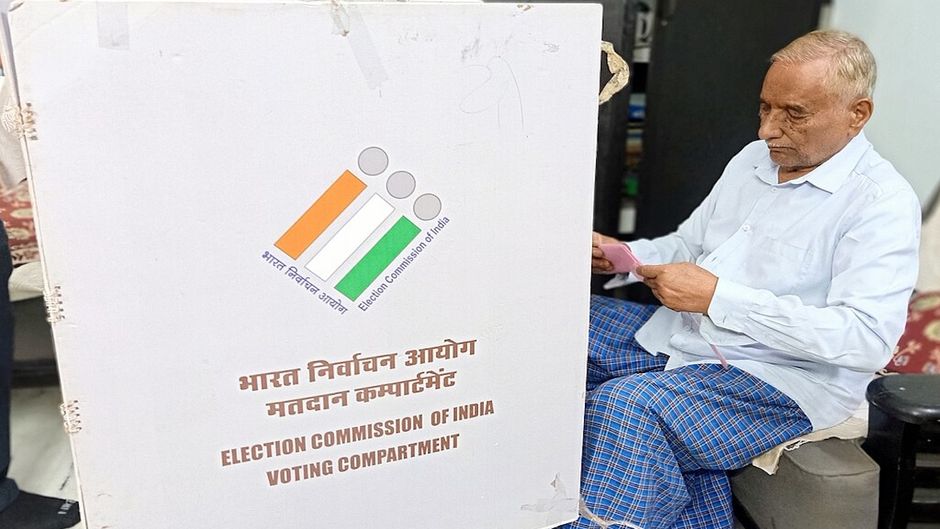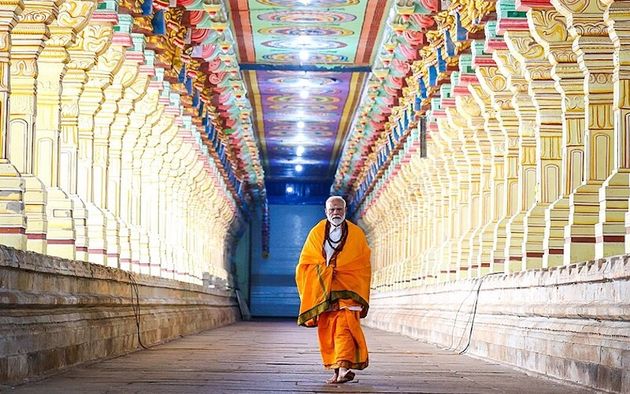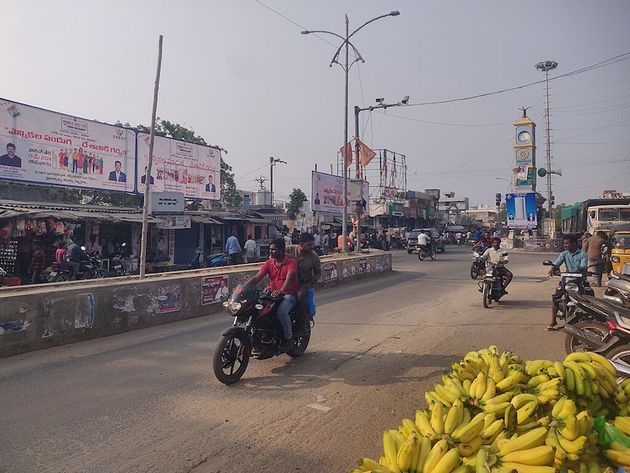Elections in India: “The biggest success of this government is the normalisation of hatred”
The polls in the most popullated country in the world show another victory for the Hindutva nationalism of Narendra Modi. “Religious freedom is important and under threat”, say evangelicals.
Protestante Digital · NEW DELHI · 08 MAY 2024 · 17:30 CET

India began a new general election process a few weeks ago. 960 million people have been called to vote in the world's most populous nation.
Voting began on 19 April in 21 states, continued with the second phase on 26 April in another 13 states, and will run until 1 June in seven separate stages, according to the division of territories organised by the Election Commission of India.
In the last election, the coalition of Prime Minister Narendra Modi, led by his Indian People's Party (BJP), got an overwhelming victory, winning 353 seats in the 543-seat Lok Sabha (Parliament).
Now, the polls once again show an absolute majority victory for his coalition, against an Indian National Congress that, despite being the historic party of the country's independence, is not expected to recover power.
According to Vijayesh Lal, general secretary of the Evangelical Fellowship of India (EFI), as the polling goes on, “it seems like an open contest” between Modi and his right-wing coalition, and a Congress that is seeking to rebuild its image with Mallikarjun Kharge, a former minister of labour and employment and then of railways under the Manmohan Singh governments.
“The only thing working in favour of the BJP is religion and they have made it their main poll plank”, the evangelical representative of the EFI tells Spanish news website Protestante Digital.
An “important” election
With the third phase of the elections that began on 7 May, the voting has almost reached the halfway point and the results that will be announced on 4 June are beginning to take shape.
In some regions where people have already voted, such as Uttar Pradesh, Gautam Buddha Nagar or Ghaziabad city, there has been a lower turnout than in 2019.
However, “the elections are important as Modi seeks a third term and the opposition framing this as a fight to save the constitution, alleging that there would be no more elections if Mr. Modi comes back to power, and he also will try to subvert or change the constitution”, points out Lal.
In the first two phases of the election, “the campaigning has been very shrill and polarising with even the prime minister engaging in sectarian rhetoric. There are regular reports of electronic voter machines malfunctioning and also of violence in some places”, he adds.

Religious fact, key in elections
The religious fact and religious freedom are key in the elections of this Asian country.
The guarantees of this fundamental right have deteriorated over the last five years, according to some of the main organisations that monitor the situation of religious minorities.
Open Doors, which considers India the eleventh most hostile country in the world for Christians, or the United States Commission on International Religious Freedom (USCIRF), which recommends the US government to consider India as a country of “particular concern for committing systematic, ongoing and egregious violations of religious freedom”.
That is why “the elections are also very important for religious minorities, mainly Muslims and Christians. With the kind of treatment we have been received at the hands of Hindutva groups and the government either looking the other way or in some cases even being complicit, violence is a major concern. Religious freedom is important and something that is under threat in today's India”.
But, “no matter which party comes, things are unlikely to improve much, for the hatred has seeped down very deep in the psyche of the public. The biggest success of this government is the normalisation of hatred”, so that the general secretary of the Evangelical Fellowship of India asks to “pray against the spirit and atmosphere of fear and that the new government would be one that uphold the values of the Indian constitution”.
The Religious Liberty Commission of EFI (RLC) has recorded over 150 incidents of persecution in the first quarter of 2024. “Those incidents happen every day. Anti-conversion laws in states like Uttar Pradesh are being misused against Christians”, explains Lal.
In this context, “the West needs to understand that persecution of Christians in India is a byproduct of what is happening to the country and its founding ideals. If you want to address persecution of Christians in India, it cannot be done without engaging to save and facilitate the democratic process and institutions in India”.
“But will Western business and governments understand this? I have my doubts, because religious freedom and human rights are often the first casualty on the altar of free markets. I am not against free markets but if that causes us to ignore basic values, then there is a problem”, he adds.
This is why the evangelical leader calls on Christians to “pray that the doors for the proclamation of gospel will remain open in India”.

Unemployment, pollution and foreign relations
Apart from the religious fact, “the problem of unemployment, economic slowdown and disparity, pollution and corruption will continue to exist, although the BJP has not made it the focus of its campaign”, says Lal.“Any government will have to deal with these problems and the growing polarisation of society”.
According to the World Bank, despite becoming one of the fastest growing economic powerhouses in the world in recent years, after being one of the worst hit by the Covid-19 pandemic, India still suffers from deep inequality, with a GDP per capita in 2022 of $2,410, well below the overall global average of $12,687.
Furthermore, the economy of India suffered a slowdown in 2022, with its annual GDP growth falling by almost two percentage points from 2021.
In foreign policy, “Modi has been criticised for being particularly ineffective against Chinese incursions on Indian soil”, says Lal.
While there have also been tensions over border territory with Pakistan, it is the relationship with China that seems to cause the most concern within the Indian government.
“In 2022, the Indian government claimed that the US overtook China as the largest trading partner of India, a claim that China contests. If the BJP wins again, I hope we will see some action by the government to secure our borders”, underlines Lal.
According to the Economic Complexity Observatory, in January 2024, the United States was still the main destination for Indian exports, with a turnover of more than 6 billion dollars.
By 2022, the US accounted for almost 18% of India's exports, worth nearly 83 billion US dollars. Most of those exports were diamonds (12%), packaged medicines (9%) and refined petroleum (6%).
What Lal does believe is that, whatever the outcome of the elections, India's role in the international community (for example through its membership of the BRICS group of emerging economies) is not expected to change.
One more year
Learn all about our #OneMoreYearEF campaign here (English).
Published in: Evangelical Focus - world - Elections in India: “The biggest success of this government is the normalisation of hatred”
